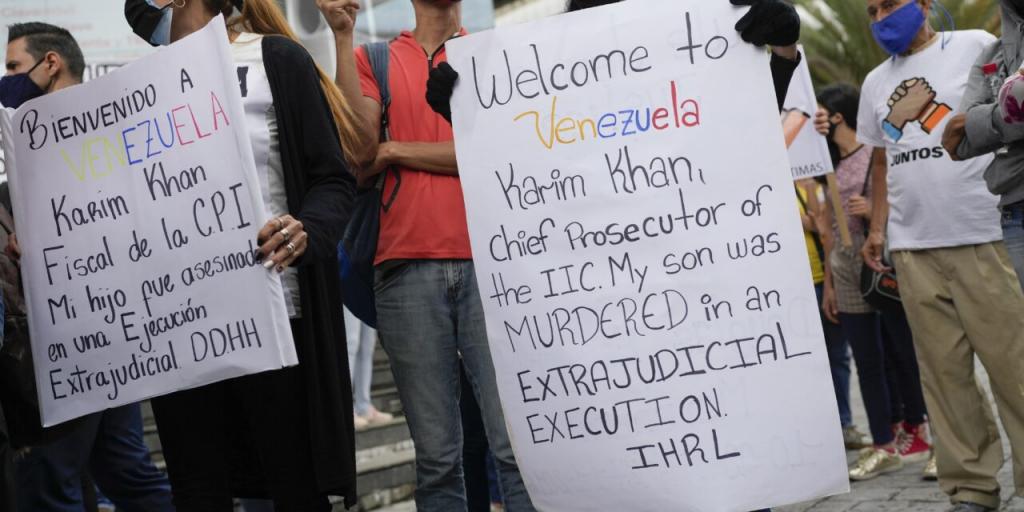Secondary menu
Working Group: The Venezuela Accountability Project (VAP)
By: Samantha Misner (2L)  Photo Credit: Venezuelan Politics and Human Rights
Photo Credit: Venezuelan Politics and Human Rights
Leads: Samantha Misner (2L), Andrew Parker (2L)
Members: Antonia Dederichs (LLM), Gautam Raghuvanshi (LLM), Duncan Crabtree (2L), Arifah Razack (2L), Foti Vito (, 2L), Courtney Cowan (3L), Mariya Aksyonova (graduate student), Mina Alam (1L), Jason Quinn (1L), Adrian Piecyk (1L), Madison Regan (1L), Homi (Hailey) Min (1L)
What is the objective of your working group?
The Venezuela Accountability Project (VAP) is a project with the Global Accountability Network (GAN), a group of international criminal prosecutors and practitioners who supervise law students working on specific atrocity projects. GAN conducts regular reporting, professional documentation, investigation, and analysis of potential incidents within atrocity situations. In 2020, GAN founded the Venezuela Accountability Project (VAP) to investigate atrocity crimes perpetrated by the Maduro Regime against the people of Venezuela.
GAN's Accountability System was developed through methods employed by GAN’s founder, David Crane, in the successful prosecution of former President of Liberia Charles Taylor in the Special Court for Sierra Leone. Each of GAN's Accountability Projects follows the same basic operational structure to catalog the enormous amount of evidence against atrocity criminals into an actionable format. This evidence is then made available for stakeholders to plan further evidence-gathering operations. This includes creating foundational documents such as conflict narratives and crime-based matrixes to select the most responsible parties (MRP) and most egregious incidents (MEI) of each atrocity situation.
What kind of work are members of your working group engaged in?
GAN lawyers collaborate with local partners and grassroots organizations in Venezuela to determine research aims and priorities. The law students then learn how to engage in open-source investigations, research, and legal analysis regarding alleged war crimes and/or crimes against humanity.
This year, our team is split into three groups. The first team has been compiling and analyzing evidence of potential crimes against humanity through the creation of conflict narratives and crime-based matrixes. The second team has been analyzing the conflict narratives and crime-based matrixes created by previous University of Toronto students to select the most egregious incidents. The third team is working on long-term legal research projects that aim to empower third parties to understand how international law can be used to seek justice for victims.
What is the current relevance of your working group?
This project is extremely important as it is intended to directly contribute to the efforts to address crimes against humanity in Venezuela. Although media coverage of the situation in Venezuela has dropped precipitously, crimes have only continued to rise. On November 1, 2022, a Prosecutor of the International Criminal Court submitted an application seeking authorization to resume investigations into the situation in Venezuela. Students working with VAP have a unique opportunity to contribute to the potential prosecutions of members of the Maduro regime.
